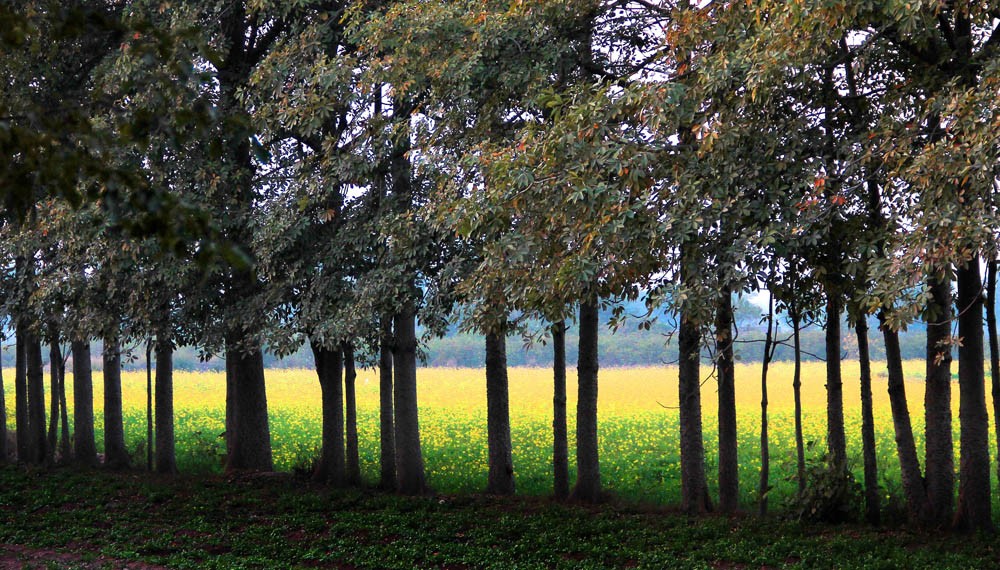
The shade has been replaced by concrete, the lungs of the city are clogged with traffic fumes, the birds and fireflies have vanished

The world has become such a strange place. It feels like we’re in a virtual maelstrom with smart phones, the internet, skype and easy mobility. There are no private spaces, nowhere we can be alone -- ‘every place we go to is like every place we left’. Identities and cultures are all mixed up. Moin Khan and Adil Rashid represent the English cricket team, Sandeep Gurdaspuria is a player on the Canadian kabaddi team (yes, Canada has a kabbadi team!). Sadiq Khan is the mayor of London, curry is a national dish in the UK, turmeric latte (good old haldi wala doodh) is the rage in Australia and our Peshwari chappal is ‘The Robert’ on international catwalks.
The world is a global village and culture, religion, race, colour, nationality are all in one big melting pot. We could be anyone, anywhere and feel at home. Yet for me there is no confusion. I suspect others may feel the same but would not say it for fear of sounding weird. But I feel unequivocally that I belong to a certain soil. That soil calls out and one cannot but hearken to its call. That distinctive smell of the earth after rain, ‘petrichor’, is not the same anywhere in the world. That might also explain my love for the trees of this land, for they too come from the same soil. We are, I suppose, kindred spirits!
The indigenous trees of Lahore carry with them a world of history, culture and a whole way of life. Every tree has a story. When woolen clothes had to be stored away in suitcases, neem leaves were brought and put out to dry in the sun. For Eid and weddings, henna leaves would be crushed and made into a paste. Hair was washed with a magic formula containing ‘beri ke pattay’. The houses with mango trees were universal neighbourhood favourites and warranted a guard to catch potential mango thieves. Every child scraped knees climbing trees, swinging on rope swings, or spying on bird nests, especially when there were eggs in them.
In early May, the Sumbul tree would flower and little cotton balls would come floating everywhere, and children would collect the balls to make toy cushions. There was a tree with red flowers whose petals would make the loveliest nails that were stuck on unabashedly with spit. When the jaman trees started bearing fruit, long bamboo ladders would make an appearance along the canal and one would witness the familiar scene of men climbing up the ladders to pick the jamans. The branches of trees near shrines would flutter with multi-coloured strips of cloths carrying hopes and prayers of so many.
The scorching summer would bring the glorious Gulmohar and Amaltas, their beauty almost making the heat bearable. Peepal and Bohr (banyan) trees would be a common sight and under their ample shade, people would gather to exchange the news of the day, have a cool drink, perhaps sing a song or tell a story or two.
The famous bohr tree in Lahore was the one after which the Bohr Wala Chowk near the Railway Station, was named. But now that tree is gone. The road has been widened as have so many other roads. Majestic trees have been cut to make way for under-passes, bridges and wider signal free corridors. The shade has been replaced by concrete, the lungs of the city are clogged with traffic fumes, the birds and fireflies have vanished. The city may still be green, but the native trees have been replaced by ornamental shrubs, imported palm trees, shade-less kulfi trees called asoka and the water guzzling eucalyptus.
On Eid, we get chemical cone mehndi, we wash our hair with expensive shampoos, we put naphthalene balls in our clothes, we take our children to play-pens at Mcdonald’s, we hear our stories and songs on the internet and we drive past the palm trees in our air-conditioned cars.
Our rulers aspired to make Lahore like Dubai and we have ended up like a cheap imposter losing our own identity in the process. We have let our kindred spirits die and a part of us has died with them. Can you hear the anguished call of the soil?